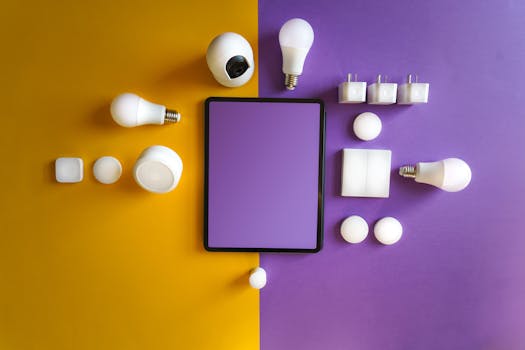
Home Automation in 2025: The Smart Home Ecosystem
Home Automation in 2025: The Smart Home Ecosystem is revolutionizing the way we live and interact with our living spaces. With the rapid advancement of the Internet of Things (IoT) and artificial intelligence (AI), home automation has become an essential aspect of modern living. In this article, we will explore the current state of home automation, its benefits, and what the future holds for this exciting technology.
What is Home Automation?
Home automation refers to the use of technology to control and monitor various aspects of a home, including lighting, temperature, security, entertainment, and appliances. This is achieved through a network of devices and sensors that communicate with each other and can be controlled remotely using a smartphone, tablet, or voice assistant. Home automation aims to create a comfortable, convenient, and energy-efficient living environment, tailored to the individual needs and preferences of the homeowner.
Benefits of Home Automation
The benefits of home automation are numerous and significant. Some of the most notable advantages include:
- Energy Efficiency: Home automation systems can optimize energy consumption by automatically turning off lights, appliances, and heating/cooling systems when not in use.
- Convenience: With home automation, you can control your home’s systems and devices from anywhere, at any time, using your smartphone or voice assistant.
- Enhanced Security: Home automation systems can integrate with security cameras, door locks, and alarm systems, providing an additional layer of protection for your home and family.
- Increased Property Value: A smart home ecosystem can significantly increase the value of your property, making it more attractive to potential buyers if you decide to sell.
Current Trends and Advancements
The home automation market is rapidly evolving, with new technologies and innovations emerging every year. Some of the current trends and advancements include:
- Voice Control: Voice assistants like Amazon Alexa, Google Assistant, and Apple Siri are becoming increasingly popular, allowing homeowners to control their smart devices using voice commands.
- Artificial Intelligence: AI-powered home automation systems can learn your habits and preferences, adjusting your home’s systems and devices accordingly.
- IoT Devices: The number of IoT devices available for home automation is growing, including smart thermostats, lighting systems, security cameras, and more.
- 5G Connectivity: The rollout of 5G networks is expected to revolutionize home automation, enabling faster, more reliable, and more widespread connectivity.
Future of Home Automation
As home automation technology continues to advance, we can expect to see even more innovative features and capabilities. Some potential developments on the horizon include:
- Increased Integration: Home automation systems will become even more integrated, allowing seamless communication between different devices and systems.
- Advanced AI: AI-powered home automation systems will become more sophisticated, enabling predictive maintenance, energy optimization, and personalized recommendations.
- Augmented Reality: Augmented reality (AR) technology may be integrated into home automation, allowing homeowners to visualize and interact with their smart devices in new and innovative ways.
In conclusion, Home Automation in 2025: The Smart Home Ecosystem is a rapidly evolving field, offering numerous benefits and opportunities for homeowners. As technology continues to advance, we can expect to see even more innovative features and capabilities, creating a seamless and efficient smart home ecosystem.






